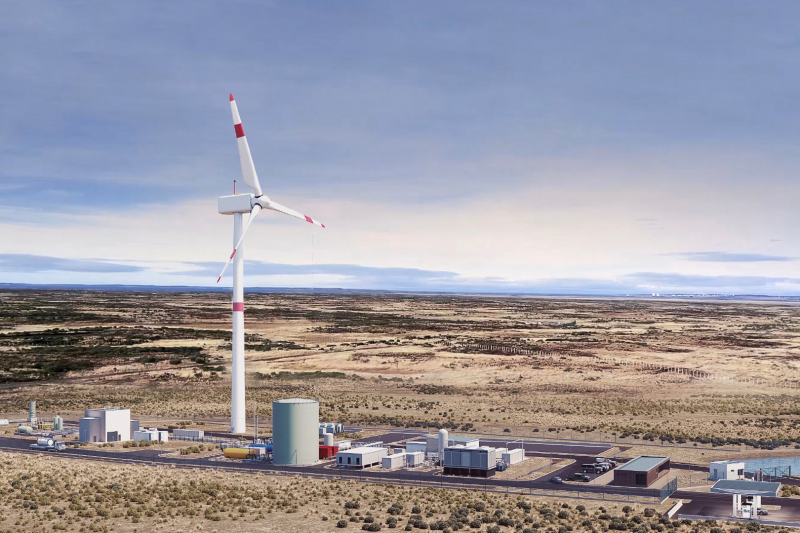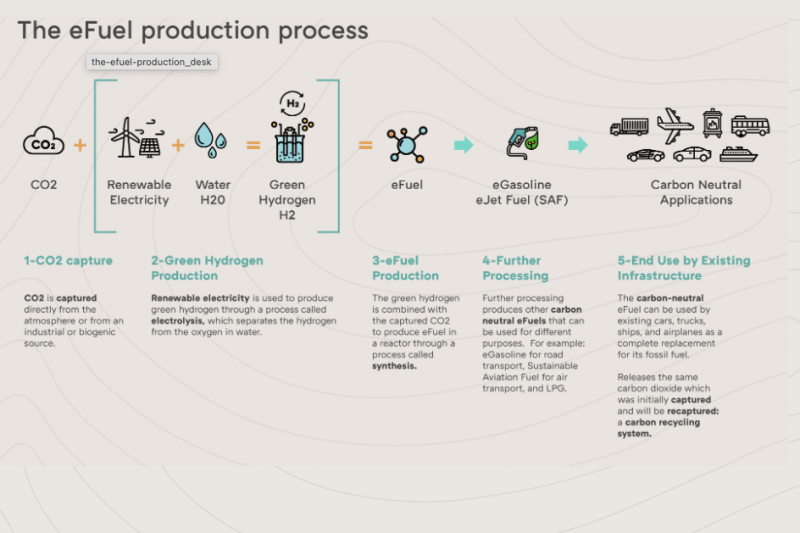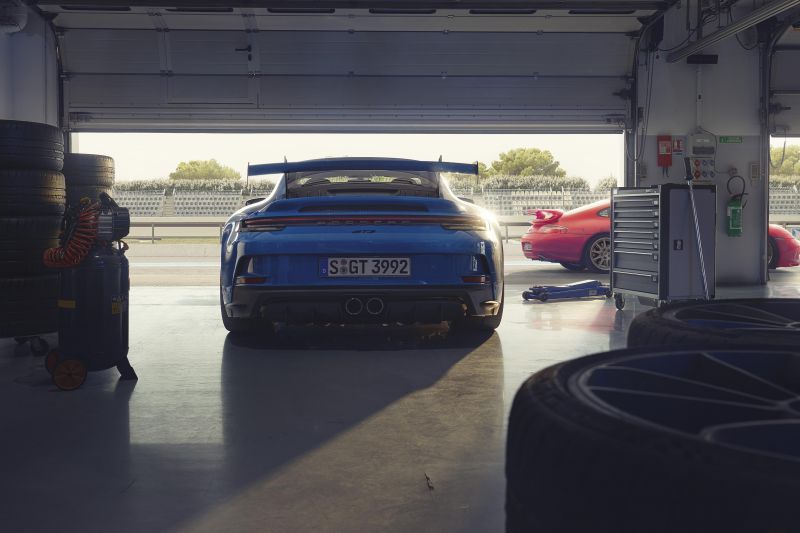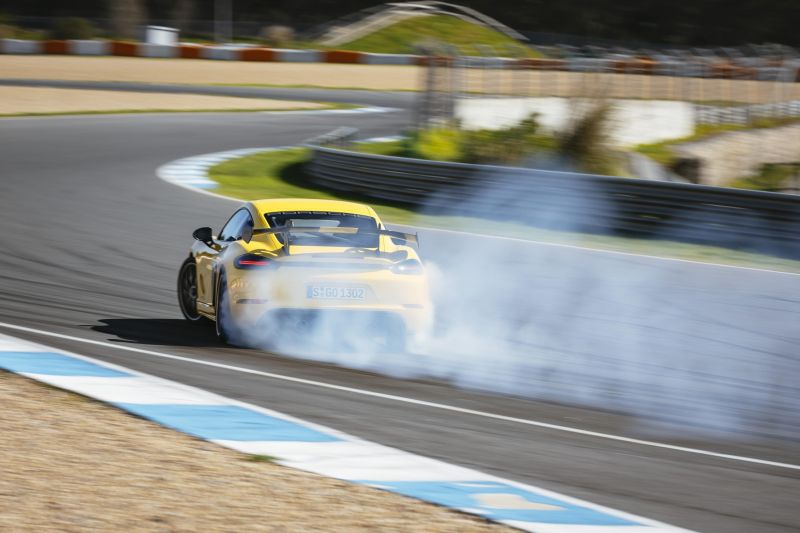Porsche and its partners plan to produce 100 million litres of carbon-neutral eFuels per year, in Tasmania, from 2026.
HIF Global LLC, in which Porsche bought a 12.5 per cent stake earlier in 2022, says its Carbon Neutral eFuel Plant will be located around 30km south of Burnie, Tasmania, with a design inspired by a similar plant in Chile.
Construction is on track to kick off in 2024, ahead of eFuel production starting in the middle of 2026. The plant is expected to produce 190 tons of eFuel per day (up to 100 million litres per year) using renewable energy, and will feature a 250MW electroliser.
“Australia has exceptional renewable energy resources that can be transformed into liquid fuels and used in existing engines,” said HIF Global president and CEO Cesar Norton.
“Today, we begin the first step in Tasmania to produce hydrogen from renewable energy, capture carbon dioxide from a biogenic source and produce highly competitive eFuels that will be the carbon neutral energy of tomorrow.”
How much the plant will cost hasn’t been revealed, but HIF Australia CEO Ignacio Hernandez earlier this year told media a plant able to produce 550 million litres of synthetic fuel per year would likely require an investment around US$1 billion.
Porsche and HIF currently operate a pilot eFuels plant in Chile in partnership with with Siemens Energy, AME, Enel, and a Chilean petrochemical company.
Production kicked off in earnest earlier in 2022, and Porsche has plans to be producing 55 million litres per year by the end of 2024, and up to 550 million litres per annum by 2026.
Porsche is investing heavily in the technology as a way to help cut CO2 emissions from internal-combustion vehicles (planes, trains, and automobiles) as the world transitions to electric power… and a way to keep the 911 alive in its current form, or something close to it.
Compared to conventional fossil fuels, which have between 30 and 40 components, synthetic fuels have as few as eight. There are fewer nasties hiding in eFuel, so it’s better for engines and the environment. Porsche says it reduces emissions by around 85 per cent compared to today’s unleaded.
Having used renewable energy to split water into hydrogen and oxygen through electrolysis, the eFuel plants combine the hydrogen with CO2 captured from the air to create methanol, which is then turned into engine-friendly unleaded.
HIF says the plant will “use renewable energy and a process called electrolysis to produce green hydrogen”.
“CO2 will be captured from a biogenic source and via a process of synthesis will combine the CO2 and hydrogen to produce eFuels. The eFuel will create a way for existing infrastructure and engines to become carbon neutral by continuously reusing and recycling the CO2.”
Along with sports cars like the 911, where noise and emotion are central to the experience, Porsche says eFuels can be used to help cut carbon in remote areas or less developed markets, where the transition to electric power will be slower compared to the world’s big cities.
How it will be distributed hasn’t been locked in. It’ll be used in Porsche motorsports categories, and Michael Steiner, Member of the Executive Board for Research and Development at Porsche AG, told media it could be mixed with more conventional fossil fuels at petrol station forecourts to help cut carbon emissions.
Porsche is targeting a wholesale price of $US2.00 per litre once production has ramped up, but how much it’ll cost the consumer will vary based on how governments decide to tax it.
“When you compare the price of eFuels with fossilised fuels, you have to see how much tax and levies go into both types,” said Barbara Frenkel, Member of the Executive Board for Procurement at Porsche AG.
“As we see more and more countries move toward sustainability, you can imagine fossil fuel becomes much more expensive with extra taxes on – especially when you regard the CO2 footprint correctly. Government could also help make eFuels more attractive,” she told media.
“I think that is also a big driver, and a big supporter, for making it attractive to a variety of industries.”
MORE: Why is Porsche developing synthetic fuel?
MORE: Porsche could be producing eFuels in Australia by 2026











